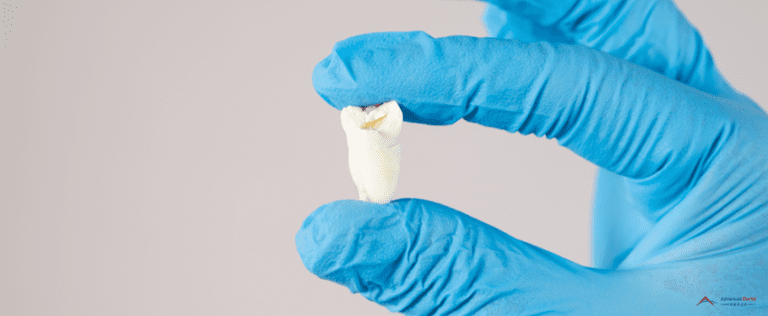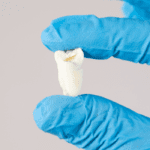Are you the type of person to drink a cup of coffee every morning? If you are, you’re not alone. Millions of Americans enjoy a cup of rich, piping hot coffee every day. Coffee is well known to be beneficial to our health; however, it’s also well known that coffee and teeth don’t go well together.
You might be surprised to learn that it isn’t entirely true. While coffee contributes to the development of many dental problems, it can still offer some benefits.
Learn about coffee and dental health and how you can safely enjoy your morning cup of joe without putting your oral health at risk.
Coffee and Oral Health: Pros
Most of us know that coffee and oral health do not go together. However, recent studies show that drinking coffee in moderation can benefit your oral health.
Rich in Antioxidants
Drinking coffee in moderation can help protect your teeth. Coffee is rich in antioxidants, making it good for your overall health, including oral. Coffee has trigonelline, a natural antioxidant that can inhibit the ability of cavity-causing bacteria to penetrate the tooth’s enamel.
Prevents Tooth Decay
Recent research has shown that coffee can help reduce your risk of tooth decay, but it depends on how you drink your coffee. A 2009 study published in the Journal of Conservative Dentistry shows that coffee’s natural antibacterial properties can help prevent tooth decay, but only if you take it black. Adding milk, sugar, or creamer minimizes or entirely eliminates these benefits.
Anti-inflammatory Properties
Raul Garcia, D.M.D., wrote a study from Boston University about the effects of coffee on teeth and gums. He concluded that coffee’s anti-inflammatory properties helped prevent bone loss and gum disease, which is logical since swelling is one of the first signs of gum disease. Reducing or eliminating the swelling may delay the progression of gum disease.
Fights Plaque
According to research, drinking coffee strong and black can be good for your gums and teeth. The Federal University of Rio de Janeiro discovered that black coffee has the remarkable ability to kill bacteria-forming plaque.
The researchers used extracts from the Robusta coffee bean, native to Brazil and Vietnam and known to be richer in caffeine and polyphenols than Arabica coffee. The researchers applied dental biofilms on milk teeth, then exposed them to coffee bean extract that eliminated plaque-causing bacteria. Researchers concluded it might be due to the polyphenols found in coffee.
Coffee and Oral Health: Cons
There are two sides to a coin; the same is true for coffee. While it does offer health benefits, here are some of the adverse effects of coffee on your teeth:
Bad Breath
Drinking coffee is often associated with bad breath or halitosis. Its scent lingers in the mouth, and the acidity and sugar from coffee create an ideal breeding ground for bacteria that causes cavities and foul odors.
Weakens Teeth Enamel
Enamel protects our teeth from damage. Too much coffee can weaken enamel to the point where teeth are more sensitive to disease and trauma – worse if you prefer coffee with sugar and milk. Coffee is also acidic, which further weakens teeth.
Stains Teeth
According to a rule of thumb, if something can stain your clothes, it can stain your teeth. This rule applies to coffee, tea, and wine. They all have tannins, a type of polyphenol that causes color compounds to stick to your teeth, turning them yellow. A cup of coffee is enough to stain your teeth.
Coffee is also highly acidic. Over time, regular exposure to acidic beverages can soften enamel, making it easier for stains to set in and for the dentin layer below it to show through. This gives your teeth a yellower appearance.
Increases Risk of Tooth Decay
Despite its positive effects on teeth, coffee can still increase the risk of tooth decay. Research shows that drinking too much coffee increases your chance of developing cavities because of its acidity, especially if you add sugar and/or creamer. The bacteria in your mouth consume sugar, turning it into acids and acidic plaque that weaken teeth enamel. This leaves your teeth vulnerable to cavities and sensitivity.
Coffee and Oral Health: Tips to Keep Teeth and Gums Healthy
Good news: you don’t have to stop drinking coffee to keep your smile bright. You can keep your coffee from affecting the color of your teeth by following these simple habits:
Drink coffee through a straw.
The best way to prevent coffee stains is to use a straw. Straws allow the coffee to go straight to your throat, bypassing your teeth and decreasing the chance of it coming in contact with them.
Brush your teeth 30 minutes after drinking coffee.
Brush your teeth after you finish your coffee, but wait at least 30 minutes before doing so. Your teeth’s enamel is still soft due to the acids from coffee; brushing your teeth immediately after drinking coffee will only increase the damage to your teeth’s enamel.
Visit your dentist regularly.
Dentists can thoroughly clean your teeth when you visit them for a checkup, which removes plaque and surface stains. This keeps enamel healthy and reduces the chance of staining.
Eat acid-neutralizing foods.
Rinsing with water may not be enough to lower your mouth’s acidity and protect your teeth. Eating acid-neutralizing foods such as cheese after drinking coffee may help.
Drink coffee without sugar or other additives.
Drinking your coffee without adding creamers, milk, or sugar allows you to enjoy its antibacterial properties that help protect your teeth against bacteria.
Avoid adding sugar or creamer to your cup of coffee as they can accelerate the growth of stain-causing bacteria. It’s also best to drink your coffee in one sitting instead of taking small sips throughout the day to prevent bacteria buildup. You can also rinse your mouth with water after you finish your coffee.
Key Takeaway
Is coffee bad for your teeth and gums? This is a tricky question to answer because the answer depends on how you drink your coffee. It’s common knowledge that coffee and oral health don’t go together. However, recent studies show that drinking black coffee allows you to enjoy its anti-inflammatory properties, antioxidants, and plaque-fighting abilities that prevent tooth decay. However, adding sugar, milk, or creamer to your coffee may cause bad breath, weaken tooth enamel, stain your teeth, and increase your risk of tooth decay.
Don’t worry as you can still enjoy your cup of coffee as long as you take precautions. Avoid adding sugar, creamer, or milk to coffee, and try drinking it through a straw. Brush your teeth 30 minutes after drinking coffee to prevent damaging your teeth’s enamel. Try to eat acid-neutralizing foods, and visit your dentist regularly.
Enjoy your cup of coffee safely today with Advanced Dental Group.
Our partner dentists in Dillon, CO, are the best people to ask questions about coffee and oral health. They offer preventive and restorative dental services that keep your teeth and gums healthy and your smile bright and perfect. Contact us today, and we’ll connect them to you as soon as possible.





